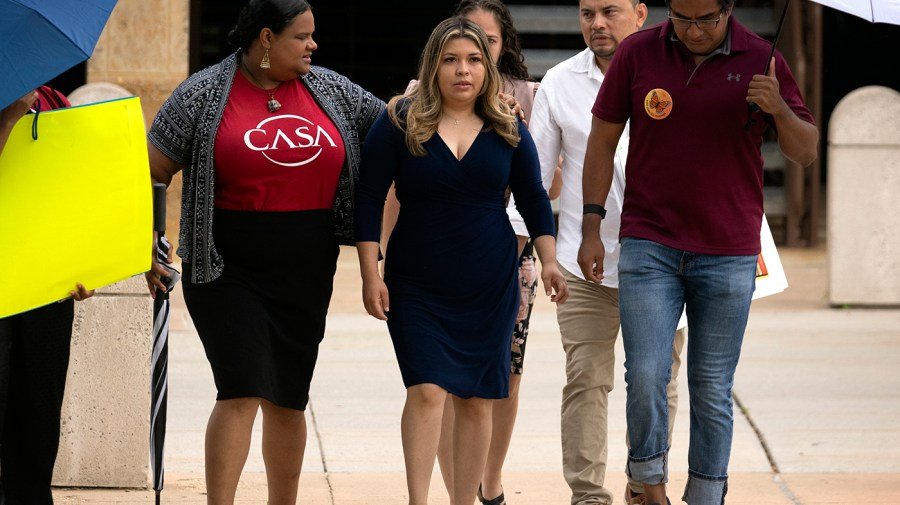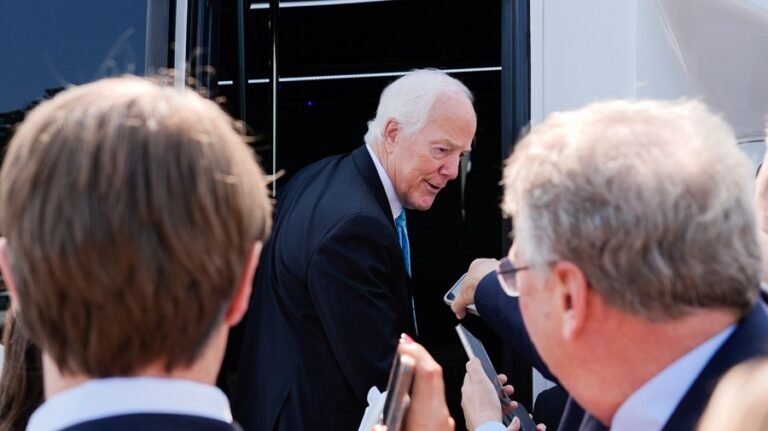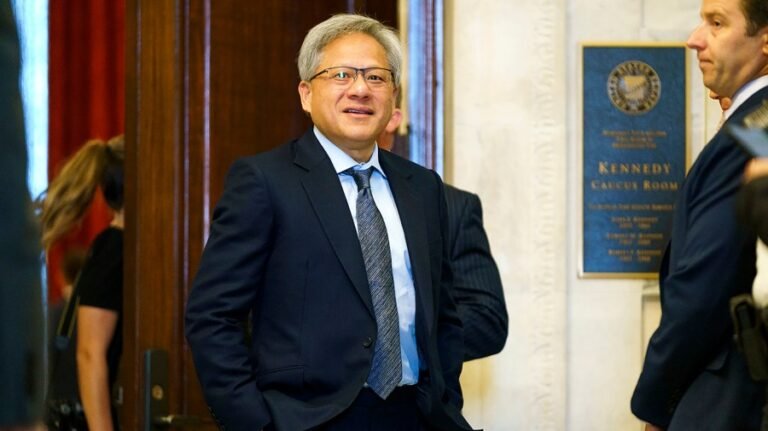
A federal judge seemed inclined to limit the Trump administration from again swiftly deporting Kilmar Abrego Garcia, who was previously mistakenly removed to El Salvador.
U.S. District Judge Paula Xinis at a Friday hearing expressed concern that Abrego Garcia would be almost immediately deported if he is released before facing his criminal charges in Tennessee and transferred to immigration custody, which could occur as soon as Wednesday.
“You have taken the presumption of regularity and you have destroyed it, in my view,” Xinis told the government.
Abrego Garcia’s lawyers asked Xinis order the government provide their client will at least 72 hours’ notice before removing him and physically return him to Maryland while any removal proceedings unfold.
Xinis, an appointee of former President Obama, said she’ll issue her order as “narrowly as I can” and at times floated ordering 48 hours’ notice.
After spending weeks at a Salvadoran megaprison, Abrego Garcia was returned to the United States last month as the government unsealed a human smuggling indictment against him. The charges accuse Abrego Garcia, who pleaded not guilty, of being part of MS-13 and transporting people in the country illegally on dozens of trips.
A separate judge in Tennessee could order his pretrial release following a hearing slated for Wednesday. Xinis said she will issue her decision after “not long,” indicating it will be in hand before Wednesday’s hearing.
As he faces the prospect of returning to immigration custody, Abrego Garcia remains protected from deportation to El Salvador under a 2019 ruling. The administration indicated it may try to lift that order or attempt to quickly remove him to another country where he has no ties, known as a third country removal.
Xinis had ordered the government to produce a witness with knowledge of what would happen were he to be released.
The government chose Thomas Giles, a senior Immigration and Customs Enforcement (ICE) official who helps manage the agency’s 25 field offices. Across several hours of testimony Thursday afternoon, he said no decisions would be made until Abrego Garcia is actually in immigration custody, and Giles said he had not been involved in his case until this week.
Back in court Friday morning, Xinis called Thomas’s testimony “fairly stunning.” She castigated him for not calling the field office that would oversee Abrego Garcia upon transfer, saying it “insults my intelligence.”
“He didn’t call anyone. He didn’t look at anything,” Xinis said.
“He learned about the case and Mr. Abrego’s situation the same way the plaintiffs did: from the news. That is plainly insufficient to tell me what’s going to happen,” she continued.
Justice Department attorney Sarmad Khojasteh insisted the judge’s intervention was improper, arguing she has no jurisdiction. Khojasteh said Abrego Garcia’s deportation would be handled by an ICE docket officer like a garden-variety case.
Khojasteh said intervening requires going “six layers deep in speculation.”
The judge and Khojasteh repeatedly sparred during the hearing, with Xinis saying it “defies reality” that it would be left to the docket officer.
Summing up the case, Xinis said the only word she could think of is “snowflake.”
“But that’s not really fair. Snowflakes are pretty and light,” the judge quipped.






